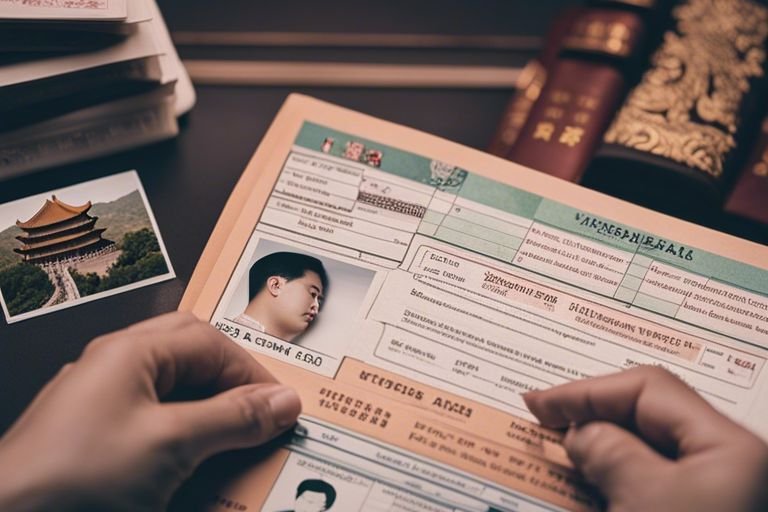How to Immigrate to China – Navigating Residency and Immigration Procedures
- Home
- How to Immigrate to China – Navigating Residency and Immigration Procedures

How to Immigrate to China – Navigating Residency and Immigration Procedures
Embarking on the journey to immigrate to China can be a daunting task, but with the right information and guidance, the process can be smooth and manageable. In this tutorial, I will guide you through the essential residency and immigration procedures you need to know in order to make your move to China a successful one. From obtaining the correct visas to understanding the local laws and regulations, I will provide you with the necessary steps and tips to ensure a seamless transition into your new life in this fascinating country. Whether you are moving for work, study, or other personal reasons, I will cover everything you need to know to make your immigration to China a successful and hassle-free experience.
Key Takeaways:
- Understanding the various types of residency permits – China offers several types of residency permits, including work permits, student visas, family reunification, and retirement visas. Understanding which permit applies to your situation is crucial in navigating the immigration process.
- Strict documentation requirements – China’s immigration process requires a significant amount of documentation, including proof of financial stability, health records, and background checks. Ensuring all necessary documents are in order is essential for a smooth immigration process.
- Key factors in determining eligibility – China considers various factors in determining eligibility for residency, such as education, professional skills, and on-the-job demand. Applicants must meet these criteria to qualify for specific residency permits.
- Local regulations and policies – Chinese immigration regulations and policies vary by locality, so it’s important to be aware of specific requirements in the province or city you plan to immigrate to. Being familiar with local regulations can help streamline the immigration process.
- Seeking professional assistance – Given the complexity of China’s immigration procedures, seeking professional assistance from immigration lawyers or consultants can significantly facilitate the process and ensure compliance with all requirements.
Understanding Chinese Residency and Immigration Procedures
As an expat looking to move to China, it’s crucial to have a good understanding of the country’s residency and immigration procedures. Navigating through the various types of residency permits and eligibility requirements can be a daunting task, but having a clear grasp of these procedures will help make the process smoother and less overwhelming.
Types of residency permits in China
There are several types of residency permits in China, each with its own specific requirements and privileges. The most common types include the work permit, student permit, family reunion permit, talent permit, and permanent residency permit. Each permit has different eligibility criteria and validity periods, so it’s essential to understand which one is most suitable for your circumstances.
- Work permit
- Student permit
- Family reunion permit
- Talent permit
- Permanent residency permit
This comprehensive table will help you understand the different types of residency permits in China, rules, and procedures for each permit, and key eligibility criteria required for obtaining them.
Eligibility requirements for different immigration categories
When it comes to immigration to China, there are several categories, including employment-based immigration, family-based immigration, study-based immigration, and investment-based immigration. Each category has its own specific eligibility requirements that must be met in order to qualify for a residency permit.
It’s important to carefully assess your personal circumstances and ensure that you meet the eligibility requirements for your chosen immigration category. This will help to avoid potential setbacks and delays in the application process, and ensure a smoother transition to life in China.
Navigating the Chinese Immigration Process
Assuming you have decided to immigrate to China, the first step is to understand and navigate the Chinese immigration process. Navigating the immigration process can be complex and overwhelming, but with the right guidance and preparation, it can be a smooth and straightforward experience.
Step 1: Gathering required documents
When starting the immigration process, the first step is gathering all the required documents. This typically includes a valid passport, a completed visa application form, a recent passport-sized photo, and supporting documents such as proof of financial stability, health certificate, and a criminal record check. It is important to ensure that all documents are up to date and meet the specific requirements for the visa category you are applying for. Missing or incorrect documents can significantly delay the process.
Step 2: Submitting the application
Once you have gathered all the required documents, the next step is to submit your visa application. Depending on the type of visa you are applying for, you may need to submit your application to the Chinese embassy or consulate in your home country. It is crucial to follow the guidelines and instructions provided by the Chinese authorities and ensure that your application is complete and accurate. Any errors or discrepancies in your application can lead to delays or rejection of your visa.
Step 3: Interview and visa issuance
After submitting your application, you may be required to attend an interview at the Chinese embassy or consulate. The interview is an opportunity for the immigration officers to verify your information and assess your eligibility for the visa. If your application is approved, you will be issued the appropriate visa that allows you to enter and stay in China. It is important to prepare for the interview by familiarizing yourself with the visa requirements and being able to articulate your purpose for immigrating to China clearly and convincingly.
Managing Residency in China
Your residency status in China is a critical aspect of your immigration journey. Managing your residency effectively is essential for staying within the legal parameters of the country and enjoying a smooth experience.
Obtaining a Chinese ID card
When you arrive in China, one of the first things you’ll need to do is obtain a Chinese ID card. This card is a crucial document that serves as your official identification within the country. To obtain this, you’ll need to visit the local public security bureau with your passport and relevant documentation. The process can be quite straightforward if all your paperwork is in order, but it’s essential to remember that the requirements can vary from one province to another. It’s necessary to keep your ID card with you at all times as it may be requested by authorities for identification purposes.
Understanding the responsibilities of a legal resident
As a legal resident of China, it’s important to understand and adhere to your responsibilities. This includes complying with local laws and regulations, paying taxes, and respecting the cultural norms and practices. Additionally, it’s crucial to keep your residency and visa documentation up to date. Failure to do so can result in fines, deportation, or other legal complications. It’s also important to remember that as a resident, you are expected to contribute positively to the community and respect the values and customs of the country.

Conclusion
With this in mind, navigating residency and immigration procedures in China can be a complex and lengthy process, but with the right guidance and understanding of the requirements, it is certainly possible. As I have outlined in this guide, there are various visa options available depending on your circumstances, and it is important to carefully assess and prepare your application to ensure its success. Additionally, staying informed about the latest immigration policies and regulations is essential for a smooth transition to living in China. By following the steps and tips provided in this guide, you can increase your chances of successfully immigrating to China and starting a new chapter of your life in this diverse and fascinating country.
FAQ
Q: What are the different types of visas available for immigrating to China?
A: There are several types of visas available for immigrating to China, including tourist visas, work visas, student visas, and permanent resident visas. Each visa type has specific requirements and restrictions, so it’s important to carefully research and choose the right visa for your immigration needs.
Q: How do I apply for a visa to China?
A: To apply for a visa to China, you will need to submit a visa application form along with the required documents, such as a valid passport, proof of financial means, and a letter of invitation or admission from a Chinese institution. It’s essential to follow the specific guidelines and procedures outlined by the Chinese embassy or consulate in your home country.
Q: What are the residency requirements for living in China?
A: The residency requirements for living in China vary depending on the type of visa you hold. For example, if you have a work visa, you will need to obtain a residence permit within 30 days of entering China. It’s crucial to understand and comply with the residency requirements to avoid potential legal issues.
Q: Can I work in China as a foreigner?
A: Yes, it is possible to work in China as a foreigner, but you will need to obtain a work visa and a foreigner’s work permit. Additionally, you must have a job offer from a Chinese employer and meet certain qualifications and requirements set by the Chinese government. Working illegally in China can result in severe penalties, including deportation and entry bans.
Q: What resources are available to help navigate residency and immigration procedures in China?
A: There are various resources available to help navigate residency and immigration procedures in China, including official government websites, legal professionals specializing in immigration law, and expatriate communities and forums. It’s essential to seek accurate and reliable information from trusted sources to ensure a smooth immigration process.
- Share
Mark Twain
Mark Twain stands at the helm of Create More Flow, infusing every sentence with the wisdom of his 15-year expeience through the seas of SEO and content creation. A former BBC Writer, Mark has a knack for weaving simplicity and clarity into a tapestry of engaging narratives. In the realm of content, he is both a guardian and a guide, helping words find their flow and stories find their homes in the hearts of readers. Mark's approach is grounded in the belief that the best content feels like a chat with an old friend: warm, inviting, and always memorable. Let Mark's expertise light up your website with content that's as friendly to Google as it is to your audience. Each word is chosen with care, each sentence crafted with skill - all to give your message the human touch that both readers and search engines love.
